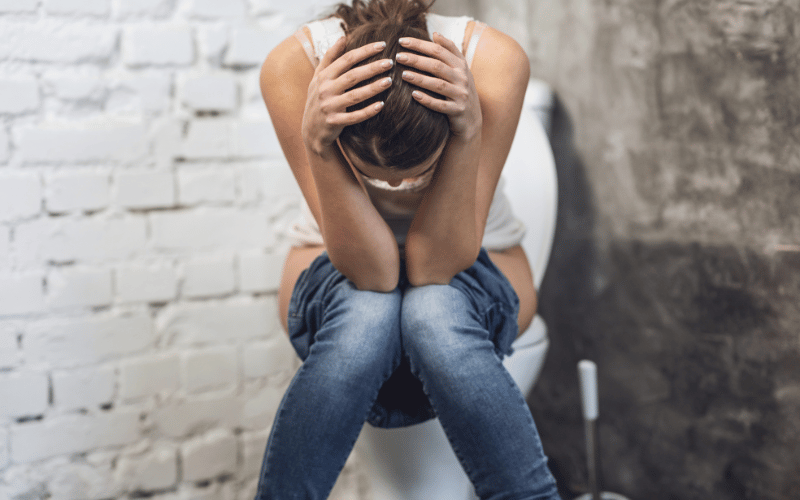Symptom 5: Constipation

Constipation, while common, can be a symptom of deeper underlying issues when paired with other indicators of rectal prolapse. It’s defined by infrequent bowel movements, difficulty in passing stools, or a sensation of blockage. While everyone experiences constipation occasionally, chronic instances, especially when paired with other symptoms, raise red flags.
The relationship between constipation and rectal prolapse is somewhat circular. Constipation can be both a cause and a result of the prolapse. Straining during bowel movements can lead to prolapse, and once the prolapse occurs, it can exacerbate constipation due to the altered rectal structure.
For many women, constipation isn’t just about physical discomfort. It can lead to feelings of bloatedness, fatigue, and even affect mental well-being. The longer the stools stay in the colon, the harder they become, making subsequent bowel movements even more challenging.
Addressing constipation requires a multifaceted approach. While lifestyle changes like increased fiber intake, hydration, and regular exercise can alleviate the symptom, it’s crucial to understand its root cause, especially if it’s indicative of rectal prolapse. (5)